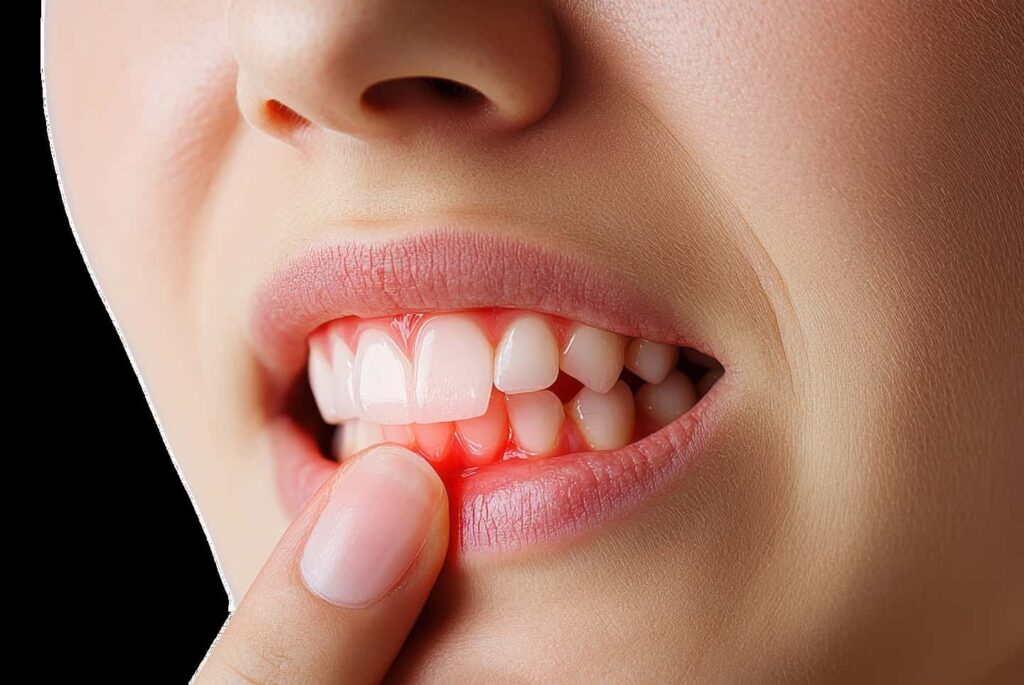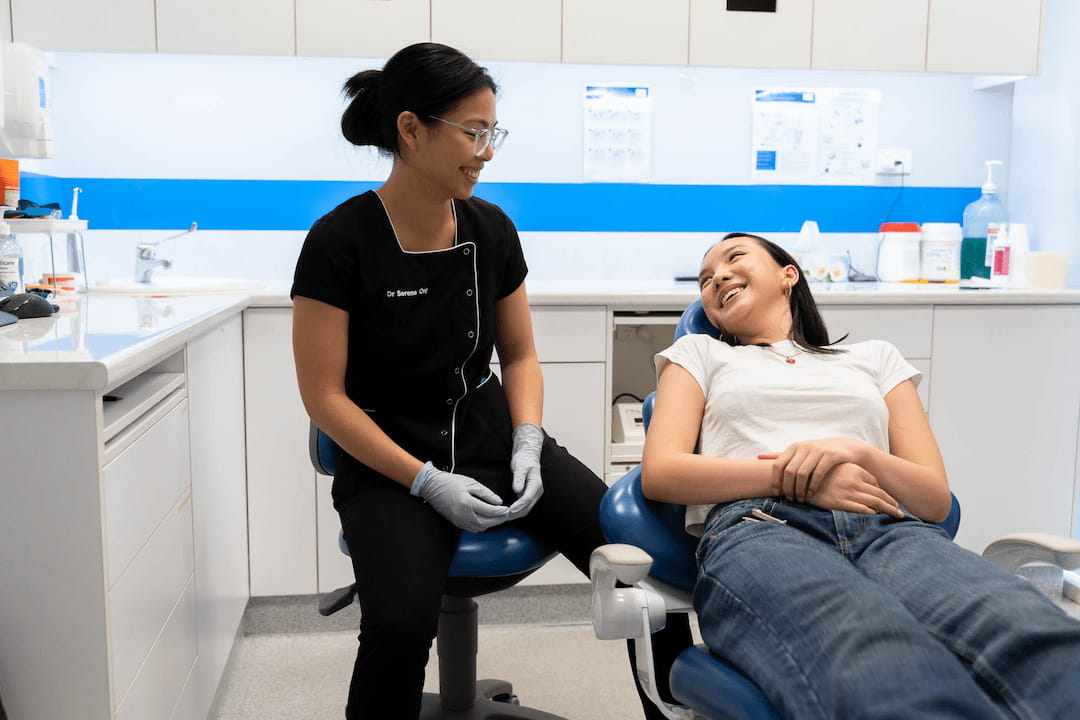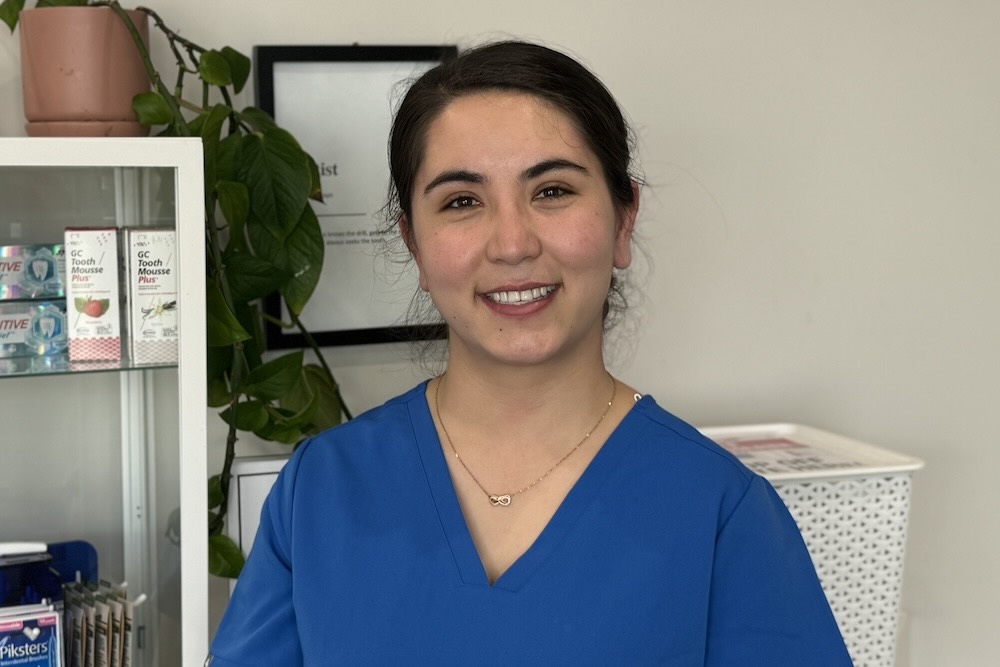Tooth Abscess
What are Tooth Abscesses?

What are Tooth Abscesses?
A tooth abscess is a localized infection that leads to a pocket of pus, caused by bacteria invading the dental pulp or gum tissue. Abscesses can form at the tip of the tooth’s root (periapical abscess) or in the gum (periodontal abscess). If untreated, the infection may spread, leading to more severe health issues.
If you’re having issues with a tooth abscess, book an appointment with one of our qualified dentists and we can help you on the way to a healthier smile.
Common Causes of Tooth Abscesses
Tooth abscesses can develop for several reasons. Understanding the common causes can help you identify risk factors and take steps to protect your oral health.
Tooth Decay: Cavities allow bacteria to infect the inner tooth pulp.
Gum Disease: Periodontal disease creates pockets that trap bacteria, leading to infection.
Cracked or Injured Teeth: Trauma or teeth grinding can expose inner tissues to bacteria.
Poor Oral Hygiene: Plaque and tartar buildup increase the risk of infection.
Previous Dental Work: Incomplete or old dental work can make you more susceptible to abscess formation.


Symptoms of Tooth Abscesses
A tooth abscess may cause a range of symptoms, including:
Severe, throbbing tooth or gum pain
Swelling and redness in the gums or face
Tender, discolored, or loose tooth
Sensitivity to pressure, heat, or cold
Bad breath or unpleasant taste
Fever or general feeling of being unwell
Swollen lymph nodes
Difficulty swallowing or opening the mouth in severe cases
Our Treatments for Tooth Abscesses
At Genesis Dental Canning Vale, treatment for a tooth abscess often starts with antibiotics to help control the infection, drainage to relieve pus and pressure, and professional cleaning for abscesses linked to gum disease. Additional options, depending on severity, may include root canal therapy to remove infected tissue and seal the tooth, or extraction if the tooth is severely damaged.
At-Home Care and Management
While awaiting professional treatment, the following can provide temporary relief:
Rinse your mouth with warm saltwater several times a day.
Apply cold compresses to reduce swelling and pain.
Use over-the-counter pain medications as directed by a healthcare provider.
Avoid applying aspirin directly to the tooth or gums.
Natural remedies, such as clove oil or fenugreek tea, may offer mild relief.
Please note: Home remedies are for temporary relief only. Professional dental treatment is essential.

How To Prevent Tooth Erosion
To reduce the risk of developing a tooth abscess, follow these preventive measures:
Brush your teeth twice daily with fluoride toothpaste.
Floss daily and use an antibacterial mouthwash.
Limit sugary foods and drinks.
Visit your dentist regularly for check-ups and professional cleanings.
Wear a mouthguard during contact sports.
Avoid smoking or using tobacco products.

When Should I See a Dentist for Tooth Abscess
Seek immediate dental attention if you experience any of the following:
Severe pain, facial swelling, or fever
Difficulty swallowing or breathing
Symptoms of a tooth abscess that do not improve with home care
An abscess will not heal on its own and can lead to life-threatening complications if left untreated.
If you’re experiencing persistent pain, or suspect you might have a tooth abscess, book an appointment with one of our dentists. Our experienced team is here to support you with gentle, personalised treatment.
Associations
Our dentists are members of reputable dental associations, including the Australian Dental Association WA (ADAWA) and the Australian Health Practitioner Regulation Agency (AHPRA). We are also accredited by QIP, meaning our practice adheres to industry guidelines and regulations.
We accept all health funds, claimable on the spot for your convenience. We are preferred providers with HBF, HCF, CBHS and NIB, meaning you can maximise your rebate.
We also provide interest free payment plan options via The Tooth Market’s Fund My Dental. We also participate in government aided programs such as the Child Dental Benefits Scheme and provide top quality treatment for Department of Veterans’ Affairs (DVA) card holders.









Meet Our Team

Dr. Serene Ong
Dentist

Dr. Ben Luu
Dentist

Dr. Ashleigh Furfaro
Dentist

Dr. Jun Liew
Dentist

Fatima Akbari
Oral Health Therapist
Tooth Abscess FAQ's
Can a tooth abscess go away without treatment?
No, a tooth abscess requires dental intervention to avoid complications.
What should I do if my abscess bursts?
If your abscess bursts, rinse your mouth gently with saltwater and contact your dentist immediately.
Are antibiotics enough to treat a tooth abscess?
Antibiotics help manage the infection but are not a cure. Professional dental treatment is needed.
Can home remedies cure a tooth abscess?
No, home remedies are only for temporary relief. Professional treatment is necessary for healing.
Contact Us
Don’t wait for tooth pain to get worse. Book an appointment with Genesis Dental Canning Vale today and let our caring team provide the relief and treatment you need.